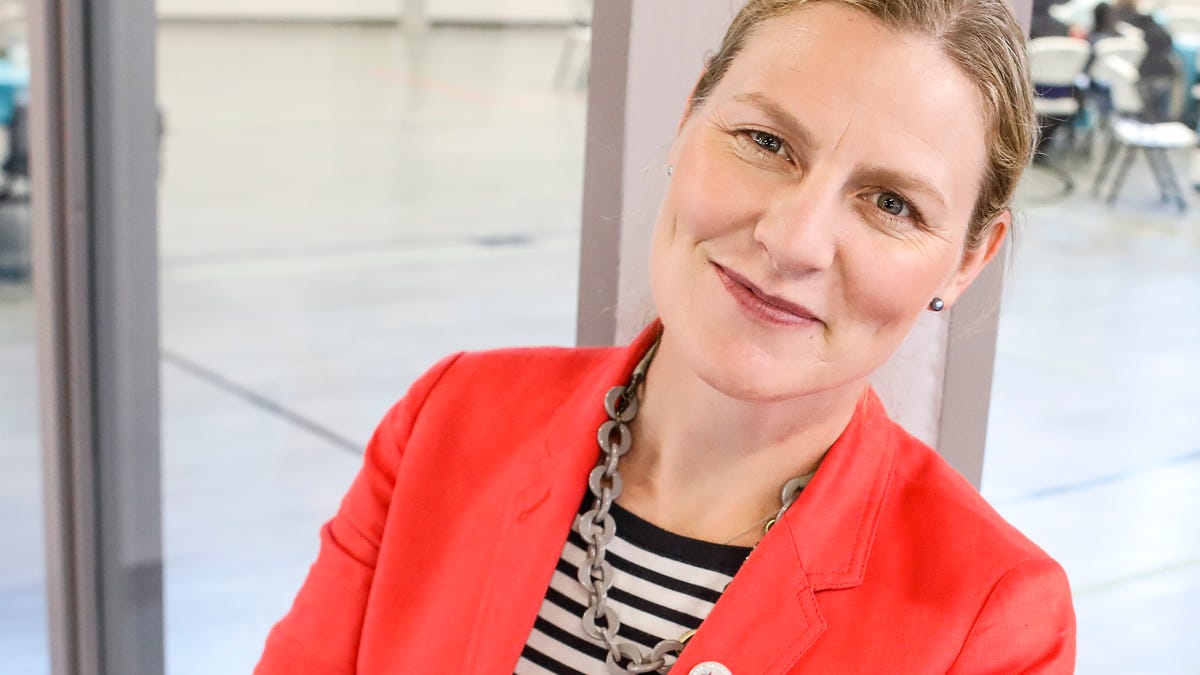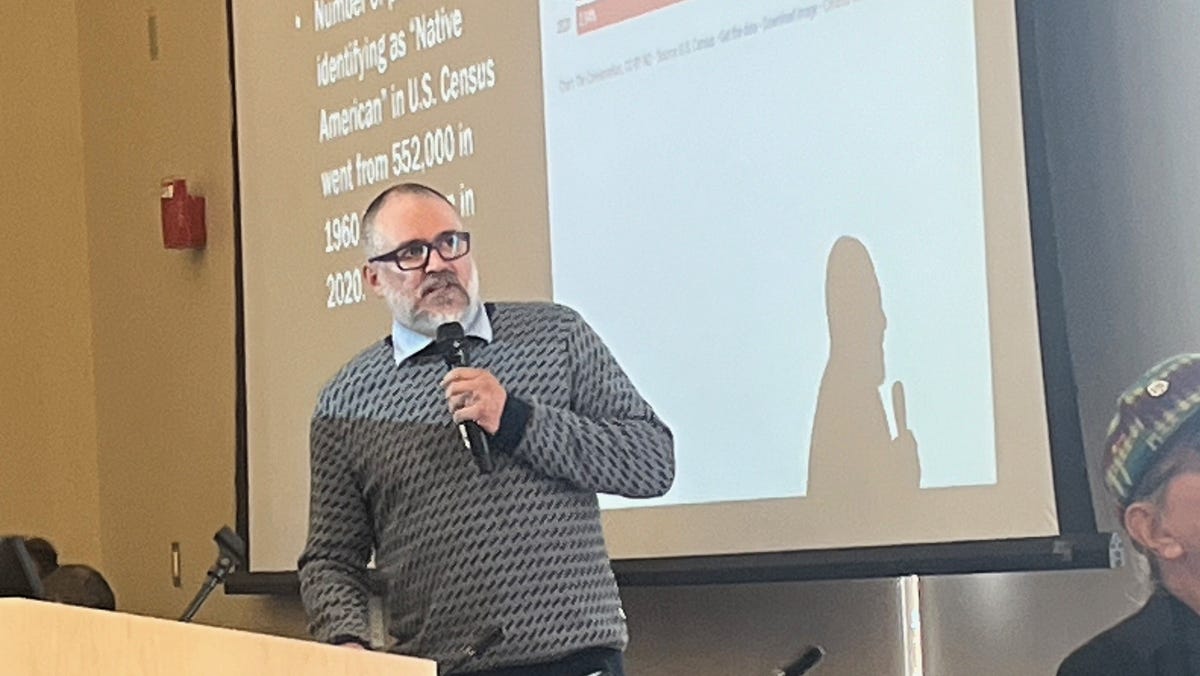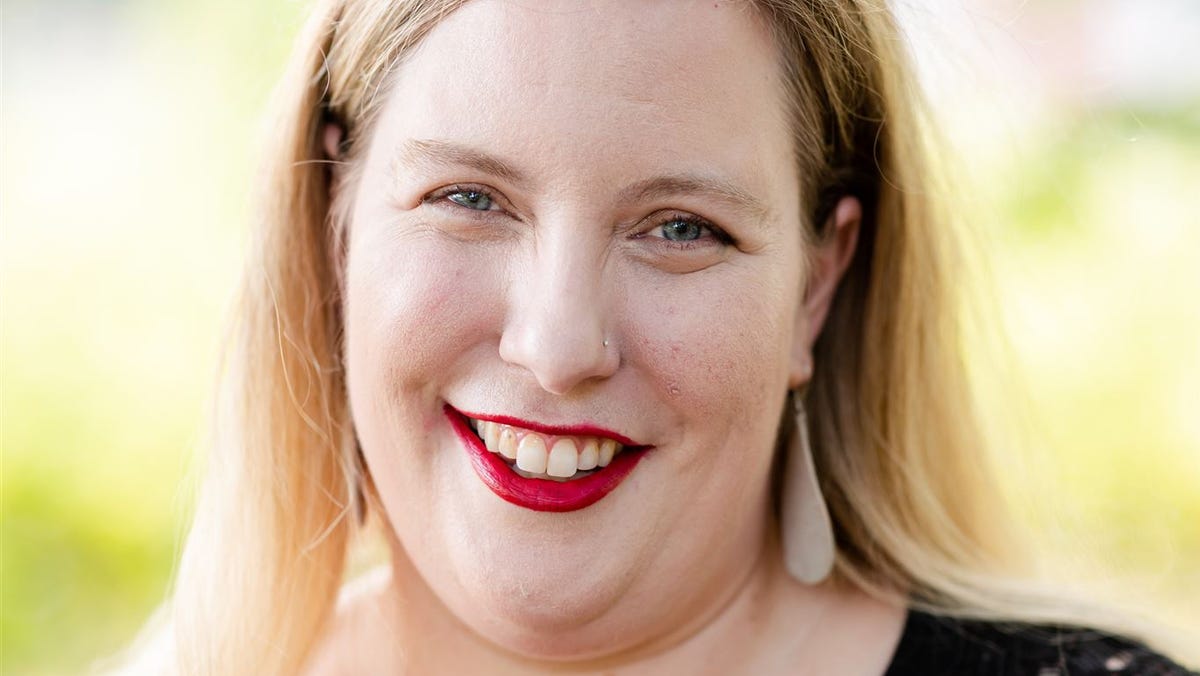Maryland
Valerie Lohr, CLM – Maryland Daily Record

Firm Administrator
Schochor, Staton, Goldberg and Cardea, P.A.
 As firm administrator for Schochor, Staton, Goldberg and Cardea, P.A., in Baltimore, Valerie Lohr led the firm to obtain quality management systems certification.
As firm administrator for Schochor, Staton, Goldberg and Cardea, P.A., in Baltimore, Valerie Lohr led the firm to obtain quality management systems certification.
Lohr said that her work to earn a Certified Legal Manager certification over the past five years she has spent in the field, is one of her most significant professional achievements.
She previously worked as general manager at H.R. Simon & Co., Inc., and SimonDR in Baltimore, and as a bookkeeper, project manager and team leader at Marshall Financial Services.
Through her membership of the Association of Legal Administrators Lohr has helped with the group’s annual school and coat drives. She was previously an active member of the Maryland PTA.
“I have also supported a local recreation council with fundraising activities and supported the team coach for my son’s baseball teams,” Lohr said.
Lohr earned her bachelor’s degree in business administration, with a concentration in management from the College of Notre Dame, now known as Notre Dame of Maryland University, in Baltimore in 2010 and earned her associate degree in childhood education from the Community College of Baltimore County in Essex.
This is an honoree profile from The Daily Record’s Leaders in Law awards. Information for this profile was sourced from the honoree’s application for the award.

Maryland
Maryland Enacts a “Draconian” Assisted Outpatient Treatment Program

In 1999, New York State passed the first Assisted Outpatient Treatment (AOT) law, which creates a regime of civil courts to force psychiatric interventions on those found to have “serious and persistent mental illness” who “struggle to engage voluntarily” with care. As of 2023, such laws were on the books in 47 states and the District of Columbia—leaving just Massachusetts, Connecticut, and Maryland as holdouts. In these three states, coalitions of psychiatric survivors, harm reductionists, peer advocates, disability rights advocates, and civil rights attorneys have fended off multi-year efforts to expand involuntary treatment. But last month in Maryland, HB 576 and SB 453, entitled Mental Health – Assisted Outpatient Treatment Programs, flew through the legislature after nearly 20 years of stalemate.
What made this year different? The answer lies largely in changing political winds, on both the state and national levels.
Nationally, the past eighteen months have witnessed an uptick in popularity for policies of psychiatric force among Democrats. In December 2022, New York City Mayor Eric Adams unveiled his controversial “involuntary removals” policy, allowing for the involuntary psychiatric detention of largely unhoused people who “appear mentally ill” in public.
In September 2023, California Governor Gavin Newsom’s Community Assistance, Recovery, and Empowerment (CARE) Court, which bears similarities to AOT, became law. CARE Court forces primarily unhoused people to accept court-ordered psychiatric interventions; any noncompliance with the orders could be used as evidence in a future conservatorship hearing.
And last month, California’s Prop 1, also championed by Governor Newsom, passed by a razor-thin margin. Prop 1 upends the millionaire tax-funded Mental Health Services Act and will reduce funding for voluntary, peer-delivered, and culturally-specific supports. Prop 1 also establishes a $6 billion bond, some of which would go toward building locked facilities to confine unhoused people who use drugs or have psychiatric disabilities.
These recent policy developments have a long, complex historical context. For over fifty years in America, pro-force family advocacy organizations, closely allied with the medical and judicial establishments, have worked to roll back the clock to the days when they had more legal control over the lives of those under their care.
Since the 1990s, the assault on the civil liberties of people deemed “severely mentally ill” has been led primarily by the Treatment Advocacy Center (TAC), a well-funded group whose efforts are fueled by a national grassroots network of family advocates. TAC can be said to be largely responsible for the spread of involuntary outpatient civil commitment laws throughout America. Early on, family advocates rebranded the law to the more politically palatable and benign-sounding “Assisted Outpatient Treatment,” and commenced selling their courts-as-care formula to politicians, the media, and the public.
AOT is not just a law; it is a philosophy and an approach that centers around “anosognosia,” a pseudeoscientific notion that a small subset of individuals labeled with serious and persistent mental illness are too ill to know they need help. Therefore, they must be “assisted” into a regime of civil courts that would theoretically ensure their ongoing treatment under supervision. In reality, the laws are drafted with fairly broad eligibility criteria.
True believers in AOT co-opt language from human rights and disability rights principles, claiming that it is a “less restrictive alternative” to jails, prisons, and psychiatric incarceration. Yet, in many of America’s underfunded and under-resourced community-based systems, it is often impossible for people to access care until and unless they are in a crisis. The help that is on offer is often largely biomedical in nature, with social determinants of health such as housing and community support left unaddressed, fueling cycles of distress.
Proponents of court-ordered treatment also frequently argue that it is voluntary. But coercion and force are baked deeply into these laws, from the “Black Robe effect” resulting from a judge’s presence in the room; to treatment orders that one usually has little say in or choice over; to the ever-present possibility of forced evaluation, hospitalization, or conservatorship for noncompliance.
How AOT came to Maryland
Maryland’s 2024 legislative session took place against the backdrop of policy changes favoring mandated treatment in New York and California. As with California’s proposals, this year the demand came from the top, with Maryland’s newly-elected Democratic governor Wes Moore making AOT a central part of his legislative agenda soon after election.
Governor Moore’s reasons for championing the legislation may have had something to do with his tenure as head of the Robin Hood Foundation, an anti-poverty nonprofit based in New York. Proponents of AOT widely view New York’s program as the gold standard, despite reports finding glaring racial disparities in its implementation. The governor’s own chief of staff, Eric Luedtke, has spoken openly about a family member’s diagnosis of schizoaffective disorder, and even testified in favor of the bill in February. And two new senior health officials, Secretary of Health Laura Herrera Scott and Deputy Secretary for Behavioral Health Alyssa Lord, also previously hail from New York.
Courtney Bergan, a Maryland attorney who identifies as a person with lived experience of involuntary institutionalization, told Mad in America that once the Moore administration sponsored the legislation, most opposition to the bill vanished. “The Democrats were like, ‘We don’t want to go up against a Democratic governor.’ That’s really what it came down to.”
Advocates immediately found the broad eligibility criteria alarming. Those with a “history of treatment nonadherence” who have had two hospitalizations, even voluntarily, within three years; or have self-harmed or attempted self-harm; or attempted suicide or an act of harm to others; or have made credible threats of harm to others during a three-year “lookback” period, would be deemed eligible for the program.
Under these criteria, “Essentially anybody with a mental illness could be put into AOT,” Bergan said.
Any adult with a relationship to the respondent can file the petition—as psychiatrist Dinah Miller wrote on X: “your mom, your kid, your roommate, your ex.” To move forward, the process requires the sign-off of only one psychiatrist, contravening Maryland’s own involuntary treatment certificate that requires two evaluators to agree.
Sole evaluators are “undeniably vulnerable to bias, whether explicit or unintentional,” according to testimony submitted to the legislature by On Our Own of Maryland, which coordinates the longest-running statewide network of independent peer-operated organizations in the nation. “This bill seems to propose much lower standards for civil commitment.”
Of equal concern to advocates was the near-unlimited range of interventions that would theoretically be allowed in a court-ordered treatment plan, including electroconvulsive therapy (ECT) or long-acting contraception.
Last month, Senator Clarence Lam, one of two physicians in the state legislature, introduced a bill amendment that would ban the involuntary use of long-acting injectable antipsychotic drugs and ECT in AOT orders. It would also protect reproductive rights by prohibiting a judge from ordering non-psychiatric medications or devices such as birth control implants.
Senator Lam’s chief of staff Scott Tiffin told Mad in America that the legislator had been hearing about AOT for years from Disability Rights Maryland, the public defender’s office, and others. He had examined the medical ethics literature on ECT and informed consent, and had seen troubling precedent involving judges’ violations of respondents’ reproductive rights. An AOT judge in Ohio had pressured a respondent to take long-acting contraception, and a guardianship judge in Massachusetts ordered a woman to have an abortion and undergo sterilization.
During their March 29 meeting, Finance committee members entered into an extended conversation about Senator Lam’s amendment, with some defending the practice of ECT. “ECT is a good thing and people should get it—that’s basically what was being said,” Bergan said. “It was wild.”
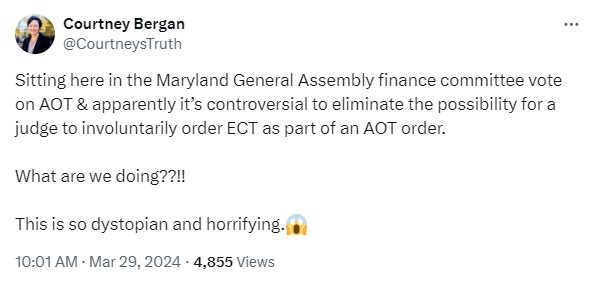
Senator Lam attempted to clarify his rationale to his colleagues: “…Because [ECT] is a very extreme measure, has some history there, can we put some limitations on that specifically?…Is that boundary a little bit too far for this to be ordered by a judge on someone without their consent?” But with scant support from fellow legislators or the Department of Health, Senator Lam withdrew the amendment at the next Finance committee meeting.
“I continue to be concerned about the lack of reasonable guardrails in the AOT bill,” he wrote in a statement emailed to Mad in America. “But, I hope the Department will take seriously the concerns about the rights of potential AOT patients as they begin implementation. I think it was important that the General Assembly included a five-year sunset on this bill so we will be able to keep a close eye on implementation.”
There was one small win in the bill, in the provision on psychiatric advance directives, highly under-utilized legal documents that outline a person’s wishes regarding treatment. A previous version of the bill said that such documents would be “considered”; in the final version, that word was crossed out and changed to “honored.” While the language reflects the aspiration that psychiatric advance directives will be respected in practice, nationwide trends do not bear this out.
A choice movement for mental health in Maryland
New, independent coalitions have emerged to challenge the steady advance of involuntary outpatient commitment laws. Californians Against Prop 1 and partners were nearly successful in defeating the ballot measure, forcing the governor to scramble for votes.
In Maryland, Bergan launched the “My Mind, My Choice” coalition, inspired by the messaging of the reproductive rights movement. “I want people to see that this could be them,” she said.
“What would you want if you were in this position? Do you want to be forced to take a medication that you feel has really harmful side effects? I want to change the narrative on this and make it about choice.”
The coalition is pursuing a multifaceted harm reduction approach to the new landscape. One strategy is to establish psychiatric advance directive clinics throughout the state to help people develop the most legally-sound documents. Another idea is to create a hotline for those facing inpatient and outpatient civil commitment, where anyone petitioned could obtain quick, free legal advice about their rights.
Advocates in Maryland are also exploring the promise of self-directed care, an approach to supporting people who would otherwise meet criteria for involuntary outpatient commitment that aligns with human rights principles of choice and bodily autonomy set forth in the UN Convention on the Rights of Persons with Disabilities.
This legislative session, Senator Lam introduced a self-directed care pilot bill drawing on the success of such programs in other states such as New York, Pennsylvania, Texas, and Utah.
This approach addresses underlying material issues driving participants’ distress by providing individualized peer support and funds for an array of supports they want and need.
While the bill did not move this year, Bergan said advocates hope to raise awareness among stakeholders and policymakers this year to galvanize support in 2025.

And then there were two…
Supporters of the law in Maryland adopted a narrative that AOT signified progress, claiming that their state “lags behind” those with involuntary outpatient commitment laws on the books. The bill noted in its preamble that only three states in the nation still lacked the authority to institute court-ordered mental healthcare. Now, just two states remain: Massachusetts and Connecticut.
Like Maryland, Massachusetts’ coalition has had to fight efforts to expand involuntary treatment annually, and this year is no different. At this writing, advocates are awaiting the outcome of a committee vote that will determine whether this year’s involuntary outpatient commitment bills, H.1694 and S.1238, will advance to the next phase of the legislative process.
Sera Davidow, executive director of the Wildflower Alliance, a Massachusetts peer support, advocacy, and training organization dedicated to harm reduction and human rights, told Mad in America that she has been tracking recent developments in Maryland as AOT returns to her state legislature. To educate and inform community engagement, she created an Involuntary Outpatient Commitment Information Center with a petition, sample letters to legislators, and videos featuring people who’ve experienced court-ordered psychiatric intervention. In one video, Earl, who identifies as a parent and a person with psychiatric history, said, “It’s going to make people go to the fringes. It’s going to make people hide, it’s going to make people run away.”
Wildflower Alliance and allied communities in Massachusetts are trying to build up non-coercive, human rights-based supports, circulating a petition in support of a significant peer respite bill currently moving through the state legislature. Davidow, along with Wildflower Alliance peer respite director Ephraim Akiva, advocate Thomas Brown, and Mental Health Legal Advisors drafted the bill, first introduced last year. It would fund at least one peer respite program in each of the state’s 14 counties, including the first two LGBTQ+ respites in the world.
The prospects of an involuntary outpatient commitment law passing in Connecticut remain slim for now. The administration and the legislature have not been enthusiastic about adopting the law over the last 25 years, and most statewide advocacy groups oppose it. Kathy Flaherty, executive director of the Connecticut Legal Rights Project, submitted testimony during Maryland’s legislative session this year noting that in her state, “Much time and effort has been expended on examining IOC, only to have the legislature reject it each time it is proposed.”
For her part in Maryland, Bergan remains steadfast, even as a potential bill looms in 2025 that could remove a key administrative barrier to rebuilding locked psychiatric facilities. “I just want people to know that even though it seems like we’re freaking failing, I’m convinced that it means we just need to be louder,” she said.
Maryland
Maryland baseball triumphs over Rutgers, 4-3

Maryland baseball extended its winning streak to four games, defeating Rutgers, 4-3, in its weekend series opener in Piscataway, New Jersey.
The Terps benefited greatly from monster pitching performances by Omar Melendez and Kenny Lippman. A four-run sixth inning was all the Terps needed to get the victory on Friday.
The Scarlet Knights struck first in the opening inning when Ty Doucette hit an RBI single. That 1-0 lead would hold through the next three frames, as Melendez and Rutgers’ left-hander Justin Sinibaldi held their ground in the early going.
After allowing the one run in the first, Melendez proceeded to work four straight scoreless innings, continuously escaping tight jams. There was only one issue Maryland grappled with: Sinibaldi simultaneously held the Terps scoreless through five frames.
The Terps finally capitalized on a scoring opportunity in the sixth. The first two Terps up to bat got on base and Eddie Hacopian crushed a two-run double to bring in Devin Russell and Elijah Lambros. The Terps went on to score two additional runs in the sixth and extend their lead to three, courtesy of a Sam Hojnar RBI groundout and a Jacob Orr sacrifice fly.
Melendez notched two outs in the seventh inning before Rutgers’ clutch two-out hitting was put on full display. Doucette ripped off a two-run double, bringing Rutgers to within one run and chasing Melendez out of the game.
In his 6 ⅔ innings, Melendez gave up eight hits, three earned runs, walked three batters and struck out five. It was a solid showing in his first Friday night start for the Terps. He was immediately relieved by Kenny Lippman.
Lippman quickly got Maryland out of the seventh inning and worked a 1-2-3 inning in the eighth. He then proceeded to shut the door on the Scarlet Knights, pitching the final inning as well. On the evening, he allowed just two hits and earned the save for the Terps.
Three things to know
1. Melendez had a strong day. Maryland head coach Matt Swope made an interesting move on Friday. Melendez, who began the season in the bullpen and earned the start the last two Saturdays, took the Friday night role. The left-hander kept Maryland in the game, allowing the Terps to take the lead in the sixth.
2. Three straight Big Ten wins. For the first time this season, Maryland won three straight Big Ten contests. The Terps also won their first Friday game in over a month, the previous coming on March 29 against Michigan.
3. The sixth inning was all the Terps needed. Maryland put up four runs on Rutgers’ pitching in the sixth inning. After the Terps went scoreless through the initial five, the four runs in the sixth was all that was needed to seize the victory.
Maryland
Documentary celebrating Baltimore’s hip-hop history to debut at Maryland Film Festival
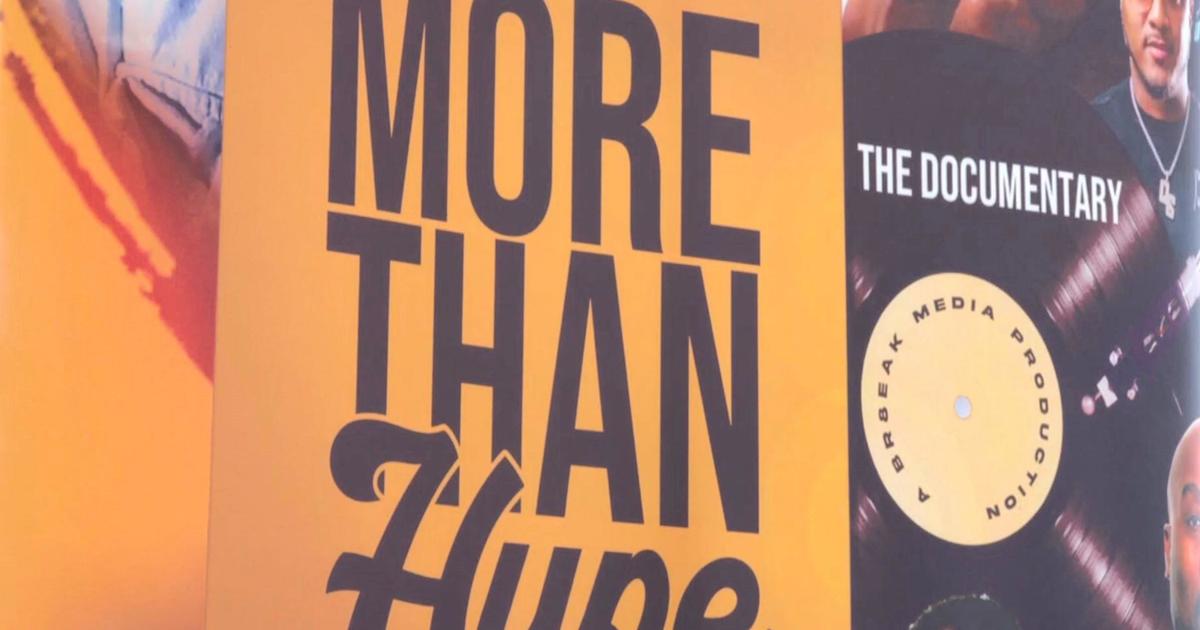
BALTIMORE — The 25th annual Maryland Film Festival is underway.
Friday night, a film documentary more than five years in the making will premiere.
It celebrates hip hop history – in particular Baltimore Club music, the vibrant scene birthed here in Charm City.
And believe it or not, it is more than just the hype.
“Baltimore club is really like the soundtrack to our city,” said Baltimore music producer, arts advocate, and DJ, Marquis ‘ Mighty Mark’ Gasque.
He calls it the heartbeat of Charm City.
“Baltimore club is feeling its war is gritty. It’s in your face. It’s an escape from your problems,” said Mighty Mark.
Baltimore entrepreneur and director Larry “Whaddup” Caudle is working to tell its story in his film – ‘More Than Hype’.
It’s a project he began in 2017 alongside colleagues he met while on tour as a hype man.
“I said you know what, let me stand on faith and get out there and tell the story,” said Larry ‘Whaddup’ Caudle the director and executive producer of ‘More Than Hype’.
The Morgan State University graduate got his degree in social work and says he took the road less traveled, putting his degree and career as a hype man to work in a different way.
“And that is exactly what I did socially working in my environment through this project that brings the community of Baltimore City together,” Larry ‘Whaddup’ told WJZ.
From artists like Scottie B to Kevin Lyles, K Swift to Rod Lee, Caudle meshes the stories of the movers and shakers behind the Baltimore hip hop scene— from past to present.
“This film wasn’t just about music. It was a social project, figuring out how to bring communities, people, businesses, organizations, and talent together,” said Larry ‘Whaddup’.
The film weaves together a personal story of the soundtrack of our city’s, all while finding a way to bridge the gap in a place with a solid but struggling music industry.
“I wanted to empower the people, enlighten the people, and educate the people about our music,” said Larry ‘Whaddup’.
The film features music producer and art advocate Mighty Mark whose work has been featured in popular movies and shows like Insecure.
“I talked about Baltimore club music and how I’m trying to push the genre forward,” said Mighty Mark.
His work recently featured in an advertisement for the popular sports drink, Lucozade, in the United Kingdom. Mighty Mark worked on the track titled ‘Roll Call’ alongside artists TSU Terry and TT The Artist.
“Good music is good music no matter what. If you’re in Baltimore, if you’re in London,” said Mighty Mark.
“I might have to do some other screenings and stuff in Baltimore but 3 in 1 I’m done now it’s time to hit the road. We got to go,” Larry ‘Whaddup’ explained.
Larry ‘Whaddup’ told WJZ he could not have done this documentary with out the help of the artists, friends and family who helped make it happen.
“Tell your stories and just don’t keep that creativity bottled up because creativity helps heal the world,” said Mighty Mark.
Larry ‘Whaddup’ told WJZ he doesn’t know when the next showing will be yet, but stay tuned. For now, he said follow him and “More Than Hype” on social media for any announcements.
The Baltimore Club Music Day is on June 17.
“They can use this sound they can. They should embrace the sound,” Mighty Mark told WJZ.
The Maryland Film Festival runs until May 5. For more information and other film showings, you can visit their website.
-

 News1 week ago
News1 week agoLarry Webb’s deathbed confession solves 2000 cold case murder of Susan and Natasha Carter, 10, whose remains were found hours after he died
-

 News1 week ago
News1 week agoFirst cargo ship passes through new channel since Baltimore bridge collapse
-

 World1 week ago
World1 week agoHaiti Prime Minister Ariel Henry resigns, transitional council takes power
-

 World1 week ago
World1 week agoSpanish PM Pedro Sanchez suspends public duties to 'reflect'
-

 World1 week ago
World1 week agoUS secretly sent long-range ATACMS weapons to Ukraine
-

 Movie Reviews1 week ago
Movie Reviews1 week agoHumane (2024) – Movie Review
-

 News1 week ago
News1 week agoAmerican Airlines passenger alleges discrimination over use of first-class restroom
-

 Education1 week ago
Education1 week agoVideo: Johnson Condemns Pro-Palestinian Protests at Columbia University
